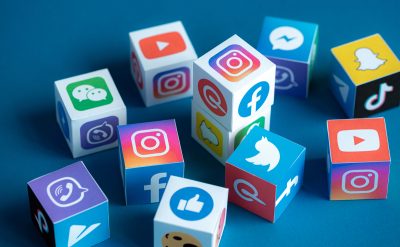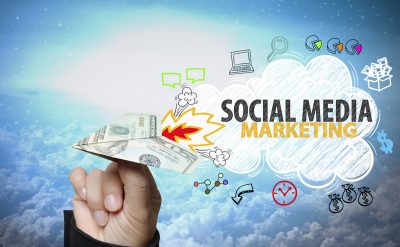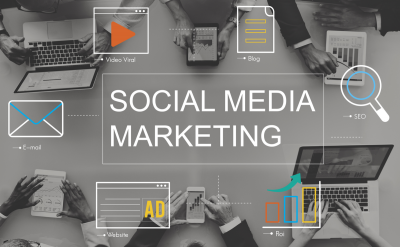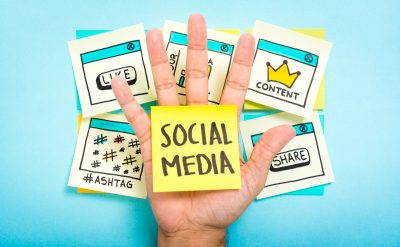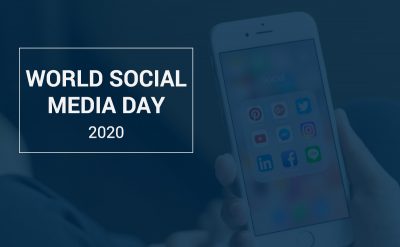Today, social media activity is higher than ever, and research from Social Media Today shows that 12 new active mobile social users join every second.
According to eMarketer, 67.4% of internet users worldwide will use a social network this year, and the number of social media users increased by 176M in the last year.
While popular social media platforms started as a way to stay connected with your personal and professional network, social media has evolved into a powerful way for brands to connect with buyers and engage in instantaneous, two-way conversations.
Social Media Marketing offers marketers an array of opportunities to engage with their potential customers. It has the potential to keep customers involved across the buyer journey, from intent to purchase to an actual purchase.
Take a look at this global digital snapshot that illustrates the penetration of social media marketing:

Buyers are out there sharing their opinions about your brand online, whether or not you’re a part of the conversation, is up to you. To be in charge of that conversation, it is critical to participate and engage with your users in a meaningful way. There is a lot to be achieved on social media. Here is a run-through of the most important aspects:
Demand and amp; Lead Generation:
Social media offers marketers more than a way to reinforce your brand. It’s also a good way to drive people to a conversion or sale by bringing in new marketable contacts into your database and nurturing them across all channels. Be it Facebook for Business, Twitter, or Linkedin; you are present in the spaces that your target audience frequents. For example, if you are targeting a younger crowd, there is no better space than Instagram and Snapchat, but for B2B lead generation, LinkedIn can be indispensable.
Social selling also gives you a new way to connect with your buyers. Your social media marketing and sales team (if you have one) can reach out to people on a 1 on 1 level and offer them personal, relevant content, messages, and offers to accelerate them toward a purchase.
Improve your Brand Awareness:
With the steady rise of internet and mobile users, social media has become ubiquitous across the globe. As a B2B marketer, social media is an important channel to reach relevant audiences and develop their awareness, recognition, and sentiment for your brand. Platforms like LinkedIn, Twitter, and Facebook (Business or sponsored) are your friends if you want your relevant audience to know about your brand.
In fact, according to data from Global Web Index, more than a third of users seek out brands on social media—using it to engage with brands that they already like, research products and services for purchase, and obtain customer service. Traditionally, one way that buyers find you is through influencers—trusted individuals that engage with your brand or product. In the past, influencer marketing was typically owned by your PR team, who tracked and cultivated relationships with key players in your industry and market, but social media has changed the game.
Enhance your Website’s SEO:
Search engine crawlers are aware of which pages earn higher traffic and which don’t. This means you can never sideline your content marketing strategy, which still stands as an essential factor for search rankings.
Pro Tip: Re-sharing your evergreen content or the content that garnered most amounts of views now and then on your social media channels (including new content) will help you with your website pages. Additionally, targeting proper keywords and hashtags while sharing your pages will ensure your website’s rank is pushed up.
Understand your audience better:
The primary reason to spend on social media marketing is that 59% of people access social media every day, and over one-thirds check social media five times a day.
Twitter and Instagram are effective marketing tools to enhance interaction with your customers. Through these tools, you will gain insights about your customer’s behavior and trends such as:
- Which products are they buying and why?
- What kind of posts do they prefer?
- What are their hobbies?
- Websites they visit
Social Media is Key to Customer Service:
Besides basic interaction and marketing, social media platforms can be the easiest way to find out if your service or product isn’t doing what it is supposed to. A quick and prompt response can go a long way to convince an aggrieved customer that you care, and this increases brand loyalty.
A SproutSocial study found out that customers want social media responses within 4 hours, but an average response time of not more than 10 hours.
Become a Thought Leader in your field:
Possibly the most important aspect for B2B enterprises, posting insightful content on your social media platform is a great way to become a thought leader in your field.
There is no one way to establish yourself as an expert, it requires a lot of work across multiple channels, but be sure to utilize social media platforms to build your presence and promote your authority.
If you are directly connected to your customers, it creates a relationship that they will value, and subsequently, you will become an influencer in your domain. It obviously takes time for this to happen; in the interim, social media is a fertile platform to approach existing influencers to push your products and services.
We will soon be following this blog with the “How” of leveraging Social Media. Till then, if you want to know more, then click here to go through our other Social Media insights.
To sum up:
The impact of social media is undeniable in almost every aspect of our daily lives—work, politics, breaking news, and more. Today, it’s almost universally used—by consumers and brands—and is one of the most effective channels to connect with your audience and generate demand.





